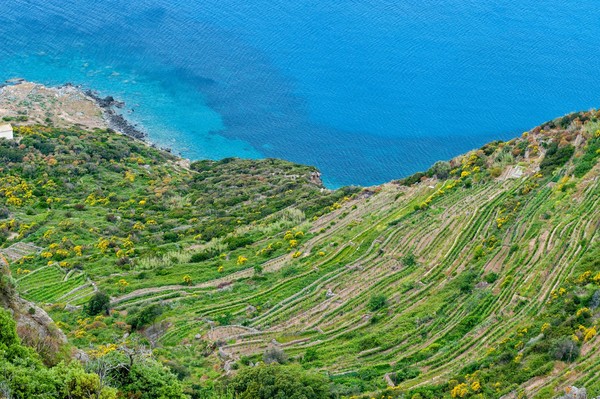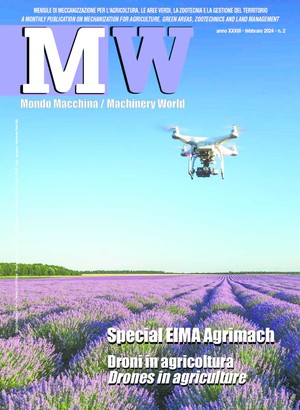
Stories of heroic agriculture in the minor islands
They are splendid natural paradises, destinations for international tourism, but also places where cultivating the land is extremely difficult, first and foremost due to isolation. But it is precisely from the 55 minor Italian islands that an additional stimulus arrives for agricultural machinery manufacturers to design equipment capable of operating even in hostile conditions
From Procida to Capraia, from Ventotene to Ponza. There are 55 so-called minor islands in Italy. They differ from the other islands due to their smaller size, lower number of residents, and lack of an electrical connection to the mainland. Consisting of 35 municipalities with a total of 200,000 inhabitants, they are natural paradises that are destinations for international tourism.
But they are also places where farmers face great difficulties, due to isolation, often hostile terrain, and scarcity of water resources. Yet agriculture, together with tourism and fishing, is among the basic activities of these islands, where every day farmers experiment with heroic actions to make the land bear fruit. And it is precisely Eima, the world exhibition of agricultural machinery, that turns the spotlight on this reality, hard and tiring but often the bearer of innovative projects in terms of economic, environmental and social sustainability. "We are talking about beautiful islands that try to get the most out of the land also because they have to have self-production of food to cut the high costs of logistics and transport," says Alessandro Malavolti, president of FederUnacoma, the trade association of agricultural machinery manufacturers that organises the show. "This is why I invite the farmers of the minor islands to always challenge us to develop even more specialised machines - Malavolti continues -.
Technology will always lend us a hand, but public contributions are needed to promote this type of agriculture, which also serves to enhance ancient flavours and histories. One of the projects for the economic and social promotion of the minor islands is Capraia Smart Island, whose promoters include Chimica Verde bionet and Itabia, which every year for three days brings together researchers from all over Europe to draw up plans for sustainable development, including energy efficiency and renewable sources, in collaboration with the Tuscan Archipelago National Park. These are fundamental projects, since, as Giampiero Samurri, president of Federparchi, points out, the islands are a heritage for biodiversity. "Encouraging agriculture in the minor islands - says Samurri - is not only good for the economy but also for the environment."
One of the 'heroic' farmers invited to bring a testimony to Eima is Alice Bollani, an entrepreneur who is in Capraia with her winery, spread over six hectares, producing 18 thousand bottles a year. "We work in difficult conditions due above all to logistics and the disconnection with the water network - Bollani explains -. We have problems with irrigation, we don't have agricultural diesel, we can't find labour. But we are a resource for Capraia. Also because agriculture in the minor islands is important for creating a stable social fabric: we must insist to avoid depopulation". The critical issues of agriculture in the minor islands include the high water losses and the absence of a complete system of differentiated waste collection and recycling.








